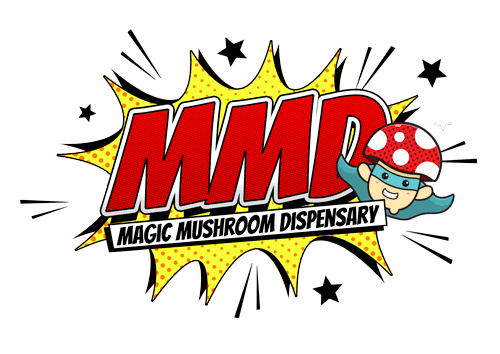Magic Mushrooms
DMT’s global legal status | A closer look
DMT, or dimethyltryptamine, is a naturally occurring psychedelic compound found in various plant materials and animals. It has been used for centuries in traditional rituals and spiritual practices. In recent times, it has caught the attention of researchers and enthusiasts alike for its mind-altering effects and potential therapeutic benefits.
However, with the increasing interest in DMT comes the question of its legal status. Laws regarding DMT vary from country to country, and understanding the legal implications of its use is crucial for anyone interested in exploring its effects. In this article, we delve into the complex web of global regulations surrounding DMT, shedding light on its legality and the potential consequences of its possession, sale, or consumption.
Key Takeaways
- DMT’s legal status varies across different regions, with some countries classifying it as a controlled substance and others having more lenient regulations or lack of specific legislation.
- Research is ongoing to explore DMT’s therapeutic potential for mental health conditions and its impact on consciousness alteration, near-death experiences, and spiritual experiences.
- The growing interest in psychedelic research and therapy worldwide is influencing the legal status of DMT, with some countries decriminalizing or legalizing certain psychedelics for medical or religious purposes.
Historical Background: DMT’s Legal Status
The legal status of DMT varies greatly across different countries and jurisdictions. In some places, such as the United States, DMT has been historically classified as a Schedule I controlled substance, meaning it is considered to have a high potential for abuse and no accepted medical use. This categorization puts it in the same class as other illegal drugs like heroin and LSD.
However, there are exceptions when it comes to religious purposes. Ayahuasca, a brew containing DMT, has been used for centuries by indigenous communities in South America for spiritual practices. Due to its cultural significance and religious importance, some countries allow ayahuasca ceremonies under specific regulations. As more research is conducted and public perception evolves, there may be changes in the legal status of these substances in certain jurisdictions.
Effects of DMT
A popular hallucinogenic drug, often found in plant material, DMT offers a wide variety of effects. Whilst all psychedelic drugs offer subjective effects, below are some of the most common positive and negative psychedelic effects that can be felt when taking DMT:
- Subjective Effects: DMT, a powerful psychedelic substance found in various plant species, induces intense and highly individualized subjective experiences.
- Psychoactive and Hallucinogenic Effects: DMT is known for its potent hallucinogenic and psychoactive effects, often resulting in vivid and otherworldly visions.
- Ego Death: Some users report experiencing ego death, a profound dissolution of the sense of self.
- Blood Pressure: DMT can cause fluctuations in blood pressure, both increases and decreases, during the experience.
- Adverse Effects: While generally considered safe, DMT use may lead to adverse effects such as anxiety, panic attacks, or challenging psychological experiences.
- Monoamine Oxidase Inhibitor (MAOI): In the context of ayahuasca, DMT is often consumed with MAOIs, which can prolong and intensify its effects.
- Therapeutic Potential: Research has explored the potential therapeutic applications of DMT, particularly in addressing psychiatric disorders like depressive disorder.
When you trip is it like the threshold of a dream?
DMT’s Classification in International Drug Control Treaties
DMT is classified as a Schedule I substance under the 1971 United Nations Convention on Psychotropic Substances. This classification designates DMT as a substance with a high potential for abuse and no recognized medical use. As a Schedule I substance, DMT is subject to strict control measures, including criminalization of production, distribution, and possession for non-medical or non-scientific purposes. The 1971 Convention aims to regulate the availability and use of certain substances internationally, providing a framework for member states to align their national drug control laws and policies.
DMT’s Legal Status in Canada
In the United States, DMT is listed as a Schedule I substance under the Controlled Substances Act (CSA). This means that it is illegal to manufacture, possess, or distribute DMT without proper authorization. However, it is important to note that while DMT itself is classified as illegal, certain plant species that naturally contain DMT are not explicitly regulated. For example, the ayahuasca vine and its accompanying plants contain psychoactive substances but are not specifically prohibited by the CSA. This has led to some legal ambiguity surrounding the consumption of ayahuasca ceremonies in religious contexts.
Research on the subjective effects of DMT has shown that it produces intense psychedelic experiences, often described as “breakthrough” or “ego-dissolving.” Some users report experiencing near-death experiences or encounters with spiritual entities during their trips. These profound experiences have led researchers to explore the therapeutic potential of DMT for treating conditions such as depression and post-traumatic stress disorder, meaning we might see the medical use of these psychedelic substances in the near future.
DMT’s Legal Status in Europe
The legal status of DMT in Europe varies across countries. In many European nations, DMT is classified as a controlled substance, making its possession, sale, or distribution illegal. For example, in countries like the United Kingdom, France, and Germany, DMT is prohibited under drug laws. However, there are exceptions and variations in legal interpretations, with some countries allowing limited use of DMT for religious or research purposes. It’s crucial to note that drug laws can change, and regulations may differ by region or even within specific jurisdictions.
DMT’s Legal Status in Asia
When it comes to the legal status of DMT in Asia, there is significant variation among countries. In Japan, for example, DMT is classified as a Schedule I controlled substance under their Narcotics and Psychotropics Control Law. Possession or distribution of DMT can result in severe penalties including imprisonment.
In contrast, several Southeast Asian countries have not specifically regulated DMT. This means that technically speaking, possession or use of DMT may not be illegal. However, it’s important to note that even though there may not be explicit laws against it, law enforcement agencies may still prosecute individuals if they consider it to be harmful or dangerous.
DMT’s Legal Status in South America
When it comes to South America, you’ll find a wide range of regulations surrounding the legal status of DMT in different countries. In some countries, such as Brazil and Peru, DMT is considered illegal, and possession or distribution can lead to severe penalties. However, there are other countries in South America where DMT is not explicitly mentioned in the law and its legal status remains ambiguous.
Brazil has strict drug laws that classify DMT as a controlled substance. Possession or trafficking of this substance can result in imprisonment for up to 15 years. Similarly, Peru criminalizes the production and sale of DMT under their narcotics laws. On the other hand, Colombia’s constitution does not specifically mention DMT as an illegal substance. This lack of explicit legislation creates uncertainty regarding its legal status. Bolivia also takes a unique approach by allowing traditional indigenous use of DMT-containing plants within specific cultural contexts.
DMT’s Legal Status in Africa
In some countries, such as South Africa and Lesotho, DMT is classified as a Schedule 7 substance, which means it is illegal to possess or sell. However, there are other countries where the legal status of DMT remains unclear due to limited research and lack of specific legislation.
For example, in Nigeria, there is no specific law that addresses the legality of DMT. This creates ambiguity and makes it difficult to determine whether its possession or use is prohibited. Similarly, in countries like Kenya and Ethiopia, where drug laws primarily focus on substances like cannabis and cocaine, there isn’t much information available regarding the legal status of DMT.
Emerging Trends and Future Outlook
The future legality of psychedelic drugs such as DMT is widely unknown due to its subjective experience, but the ongoing research into the medical psychedelic effects and its ability to treat mental illness provides a hopeful outlook on its availability worldwide.
Below are trends that are likely to see an increase in popularity due to increased interest in hallucinogenic drugs:
- Increased Interest in Psychedelic Drugs: There is a growing global interest in psychedelic substances, including DMT, for both recreational and therapeutic purposes.
- Psychedelic Tourism: Some regions are witnessing an influx of tourists seeking DMT experiences, particularly in countries where it is legally available or tolerated.
- Online Availability: The internet has made DMT-related information, including instructions for extraction and purchase, more accessible to users worldwide.
- Therapeutic Research: Ongoing scientific research is exploring DMT’s potential therapeutic applications, such as treating mental health disorders like depression, anxiety, and PTSD.
- Microdosing: Microdosing DMT, a practice where individuals take sub-perceptual doses to enhance creativity and well-being, is gaining popularity in some communities.
- Ayahuasca Tourism: Ayahuasca retreats and ceremonies, which often involve DMT, have become increasingly popular among international travelers, contributing to cross-cultural adoption.
Buy DMT Online
If you are intrigued by the potential benefits of DMT, Magic Mushrooms Dispensary has got you covered. We specialize in high-quality psychedelics, ranging from magic mushrooms to DMT, and cannabis products to satisfy your needs. We provide quick and discreet shipping!
Frequently Asked Questions
DMT can be consumed through various methods, including smoking, vaporization, or ingesting it as part of an ayahuasca brew, which combines DMT-containing plant material with a monoamine oxidase inhibitor (MAOI).
DMT induces intense and highly individualized psychedelic experiences, often characterized by vivid visual and auditory hallucinations, alterations in perception of time and space, and, in some cases, ego dissolution or ego death.
DMT is generally considered to have a low potential for physical harm or addiction. However, it can be psychologically intense, and adverse effects such as anxiety, panic attacks, or challenging experiences have been reported.

